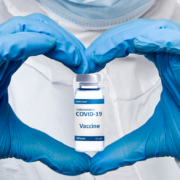Copycat versions of expensive drugs may look the same, but the impact on consumer pocketbooks is far from identical
By Sally Greenberg, Chief Executive Officer, National Consumers League
To a scientist, a biosimilar medicine is designed to work like a brand-name medicine, with the molecular structure operating in a highly similar way in both therapies. The biosimilar medicine looks the same to a doctor, too, who can expect similar clinical results.
For many patients, though, the cost of the two medicines hit the pocketbook in hugely different ways. Today, many insurance plans ask patients to pay a percentage of the list price of certain medicines out of pocket – a practice called “coinsurance” – rather than a flat copay.
Even if that coinsurance percentage is the same no matter the drug, patients can pay vastly different amounts if one drug has a higher list price than another.
This has become a quiet crisis for patients using the anti-inflammatory medicine Humira, the best-selling medicine in history. Humira carries a list price of about $7,000 a month, though insurance companies, through savvy negotiation, pay far less.
For patients with coinsurance – the specifics vary by insurer, but it’s usually around 25% of a medicine’s list price, with some plans setting a maximum per-prescription price – that could add up to more than $1,500 a month out of their own pockets to get a medicine they cannot do without. That’s a huge burden, but not a huge surprise to those who have witnessed their health insurance benefits become less and less generous.
Fortunately, there are new options. Biosimilar versions of Humira are now available that have a list price of close to $1,000 a month. For patients with a 25% coinsurance, the medicine costs $250 out of pocket.
That should be a no-brainer for consumers. Who wants to pay six times more?
Unfortunately, due to our ultra-complicated health care system, almost no one uses the cheaper biosimilar. In part, that’s because insurance companies like more expensive medicines because they can make more money from these drugs, and there are few policies in place designed to protect patients from this kind of behavior.
Doctors, too, may miss opportunities to offer patients lower-cost options. After all, when the brand-name product and biosimilar are both technically “covered” by a patient’s insurance, it seems like it shouldn’t matter which product is selected.
The truth is that because insurance benefits are all over the place, it does make a difference for some patients. A huge difference. Thousands of dollars’ worth of difference.
The good news is that there are efforts that can make this easier for consumers and their physicians. Industry, government, and advocates can commit to boosting education so that more Americans can understand their health plan.
Such an educational effort could also include a focus on coinsurance to ensure that no consumer ever gets surprised when they have to pay a percentage of an inflated cost.
But educational efforts only go so far. We cannot rely on solutions based around asking doctors and consumers to assume primary responsibility for navigating a broken system. Fixing this problem for good requires policymakers to act.
First, Congress needs to address the role the pharmacy benefit managers – the middlemen known as “PBMs” that determine how drug benefits are designed – have played in creating the distorted market structure that has led to health plan strategies designed to push costs onto consumers.
Bipartisan legislation has been introduced that would begin to correct this convoluted market and put an end to patients needlessly overpaying to pad the profits of PBMs, but congressional leaders need to prioritize reform. There may be few areas of consensus on Capitol Hill, but this is one of them, and it’s time to turn good ideas into law.
Second, meaningful market incentives need to be established to drive biosimilar uptake. This happened in the generics market decades ago, where clear incentives have driven generic drug penetration to the point where 91% of all prescriptions are for generic drugs. Unlike biosimilars, patients who take generics see clear cost savings, which is a great motivator.
But no such incentives exist in the U.S. biosimilar market, offering an opportunity for Congress to create similar incentives where both patients and physicians share in the savings available from these lower-cost biosimilars. Only then will consumers, and the U.S. health care system more broadly, realize the enormous potential of a sustainable biosimilars market.
Our health care system is complicated on purpose. Complexity makes it hard for consumers to see good deals, even when they’re right in front of them. That’s the scenario playing out with biosimilar versions of Humira: even if the drugs may be the same, the impact on patients may not be.
###
About the National Consumers League (NCL)
The National Consumers League, founded in 1899, is America’s pioneer consumer organization. Our mission is to protect and promote social and economic justice for consumers and workers in the United States and abroad. For more information, visit nclnet.org.





















